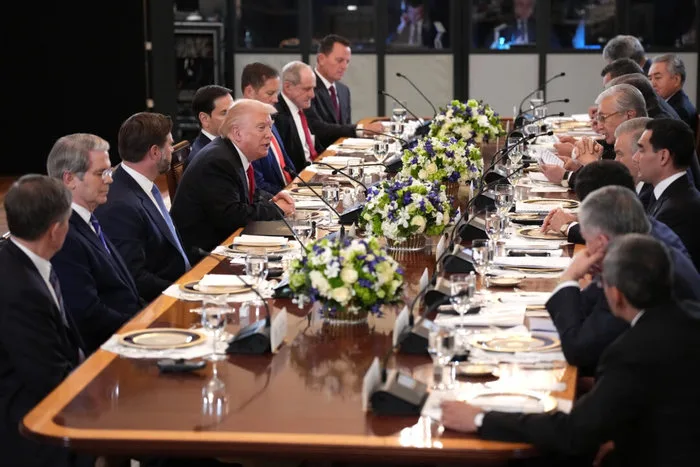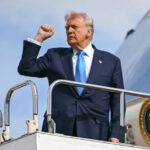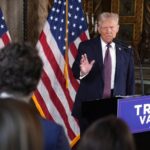By Aldgra Fredly
U.S. President Donald Trump hosted leaders of five Central Asian nations at the White House on Nov. 6, with talks centered on critical minerals as the United States pushes to diversify supply chains away from China.
The meeting involved leaders of Kazakhstan, Kyrgyzstan, Tajikistan, Turkmenistan, and Uzbekistan. Trump said in his opening remarks that he intends to strengthen America’s partnerships with the five Central Asian nations known as C5.
“These nations were once home to the ancient Silk Road connecting East and West,” Trump said. “Today, their location in the heart of Eurasia gives them incredible importance and unbelievable potential. Sadly, previous American presidents neglected this region completely.”
The president said he understands the importance of the region and pledged to make U.S. partnerships with each Central Asian nation “stronger than ever before.”
“One of the key items on our agenda is critical minerals. In recent weeks, my administration has strengthened American economic security by forging agreements with allies and friends across the world to broaden our critical mineral supply chains,” he noted.
Kazakhstan President Kassym-Jomart Tokayev called the meeting the “beginning of a new era of interaction between the United States and Central Asia” and expressed confidence that Trump would bring “common sense and traditions that we all share and value.”
“I am convinced that your wise and bold policy needs to be strongly supported worldwide,” Tokayev said at the meeting.
Trump said on Nov. 6 that Kazakhstan agreed to join the Abraham Accords, which seek to normalize relations between Israel and several Arab nations.
The move is mostly symbolic, as Kazakhstan has had full diplomatic relations with Israel since 1992, beginning shortly after the Muslim-majority nation left the Soviet Union.
Trump’s meeting with leaders of Central Asian nations comes as Russia and China strengthen ties and the United States competes with both authoritarian powers for influence in a region with strong economic ties to Moscow and Beijing.
The U.S. president also seeks to deepen economic cooperation with Central Asian nations to reduce U.S. dependency on China for rare earth minerals.
Tajik President Emomali Rahmon said at the meeting that his nation possesses abundant critical minerals resources, including metallic antimony, a material he said “the United States is deeply interested in.”
Rahmon noted that antimony accounted for 97 percent of Tajikistan’s total exports to the United States last year.
During Trump’s recent Asia tour, he signed memorandums of understanding with Japan, Malaysia, and Thailand to cooperate on surveying, investments, and production of critical minerals while protecting the industry from non-market actors such as the Chinese regime.
The U.S. president recently said that in a year and a half, the United States’ complete dependence on China for critical minerals—a strategic vulnerability three decades in the making—will no longer be an issue.
Catherine Yang, Jackson Richman, and Joseph Lord contributed to this report.





